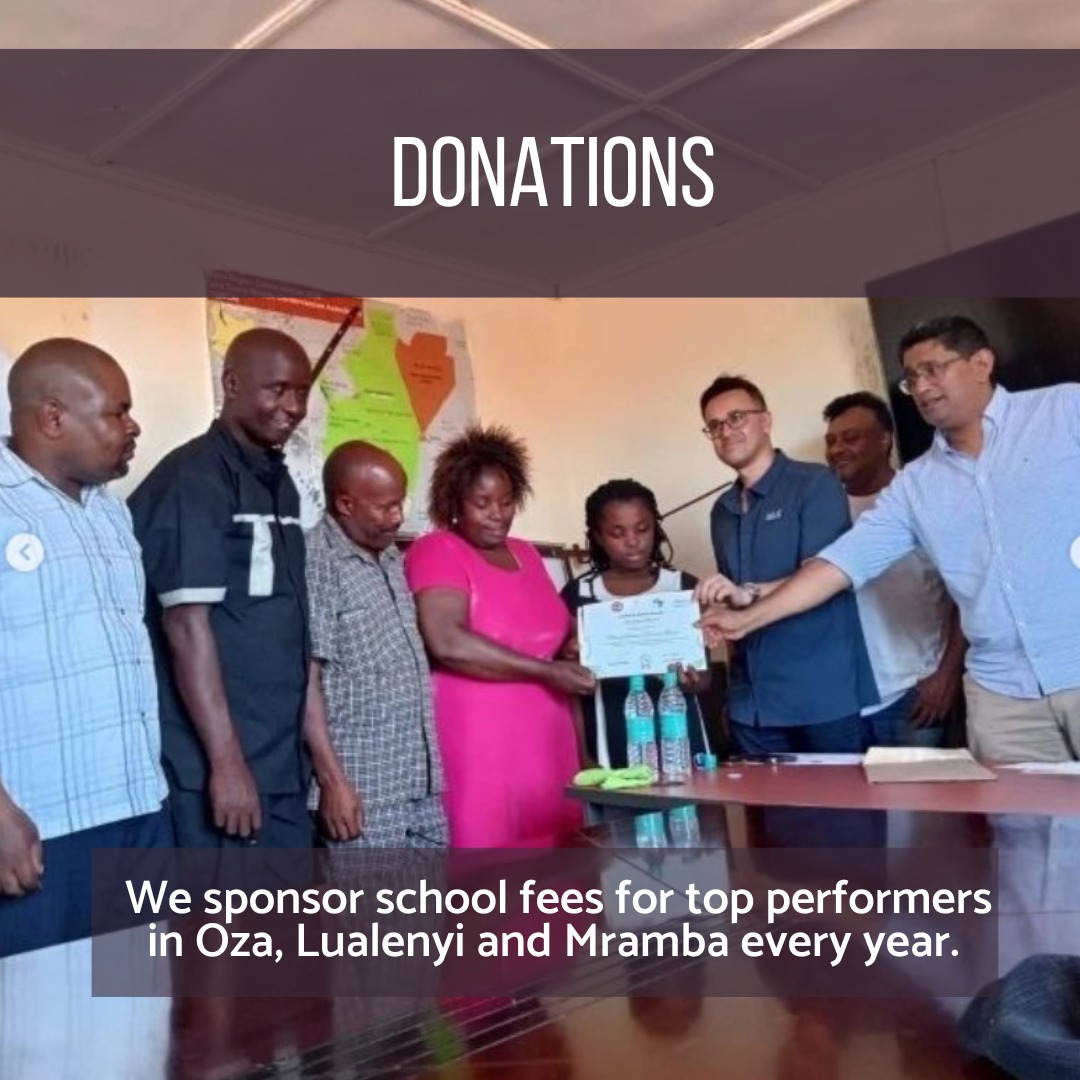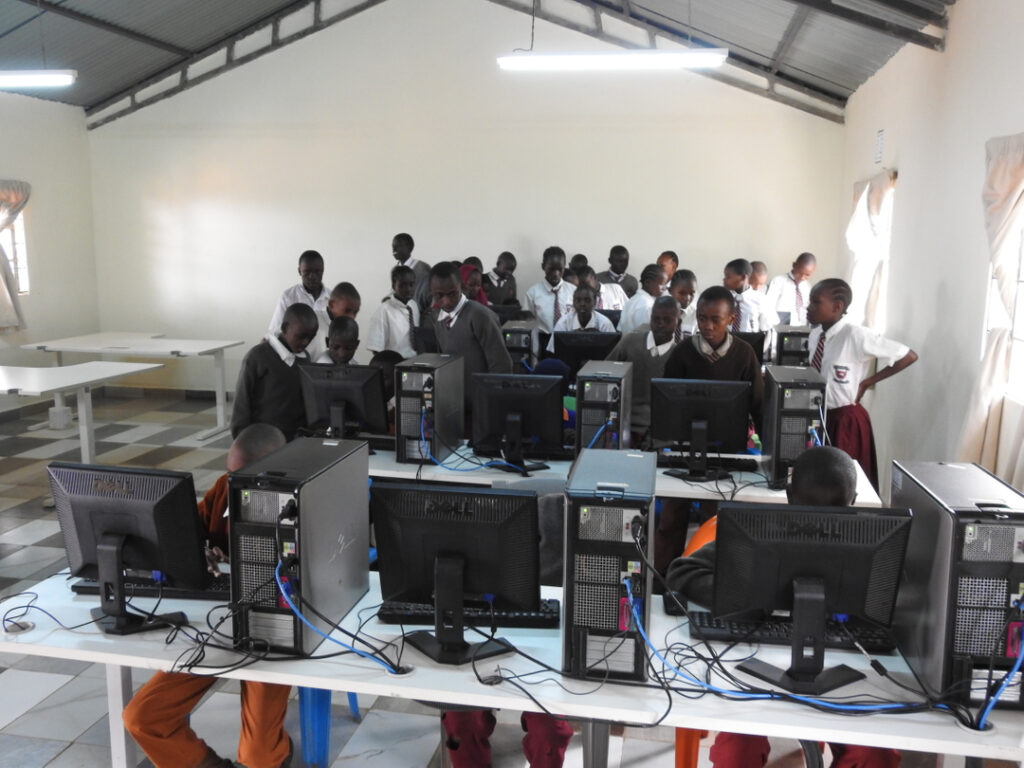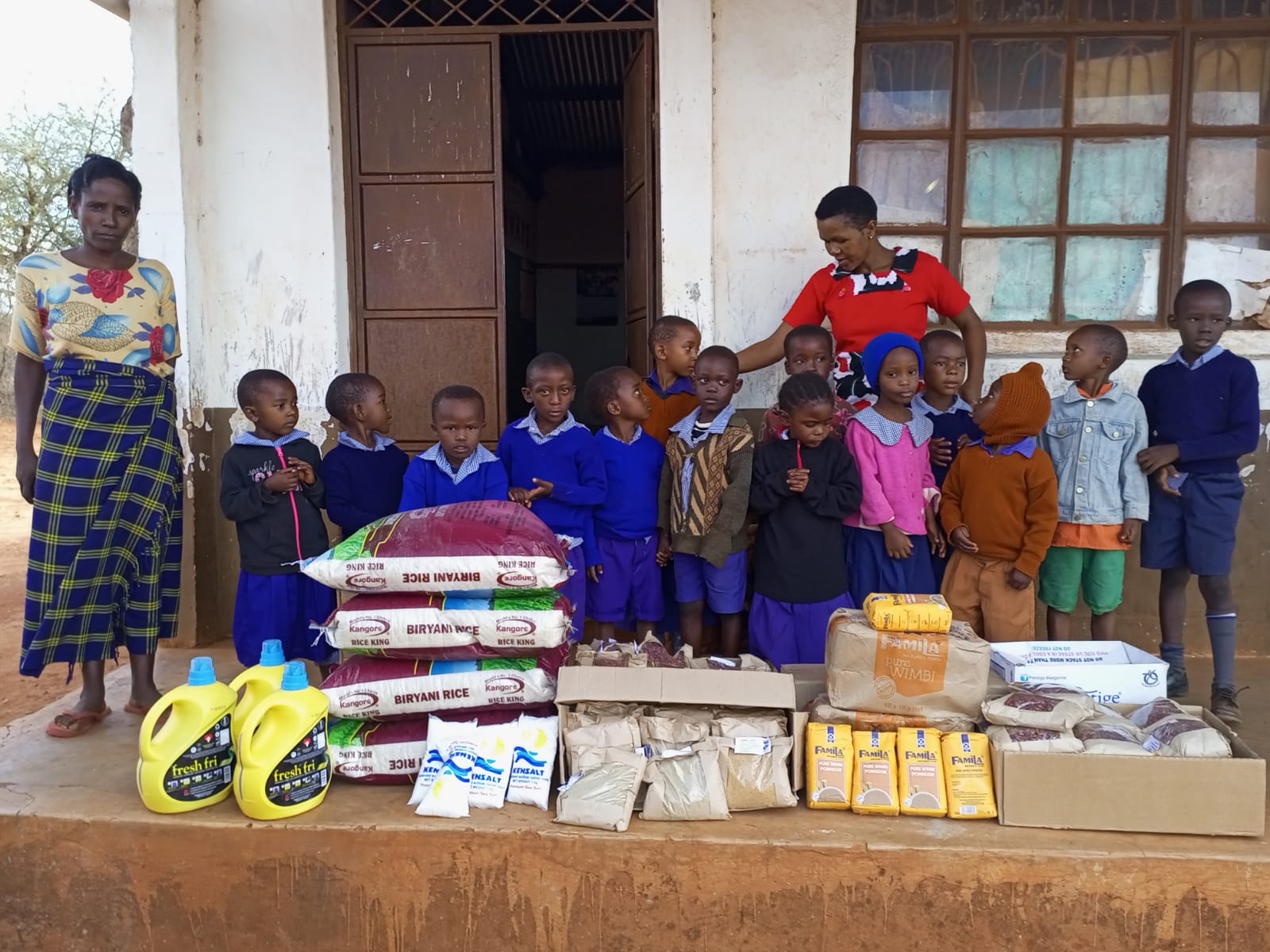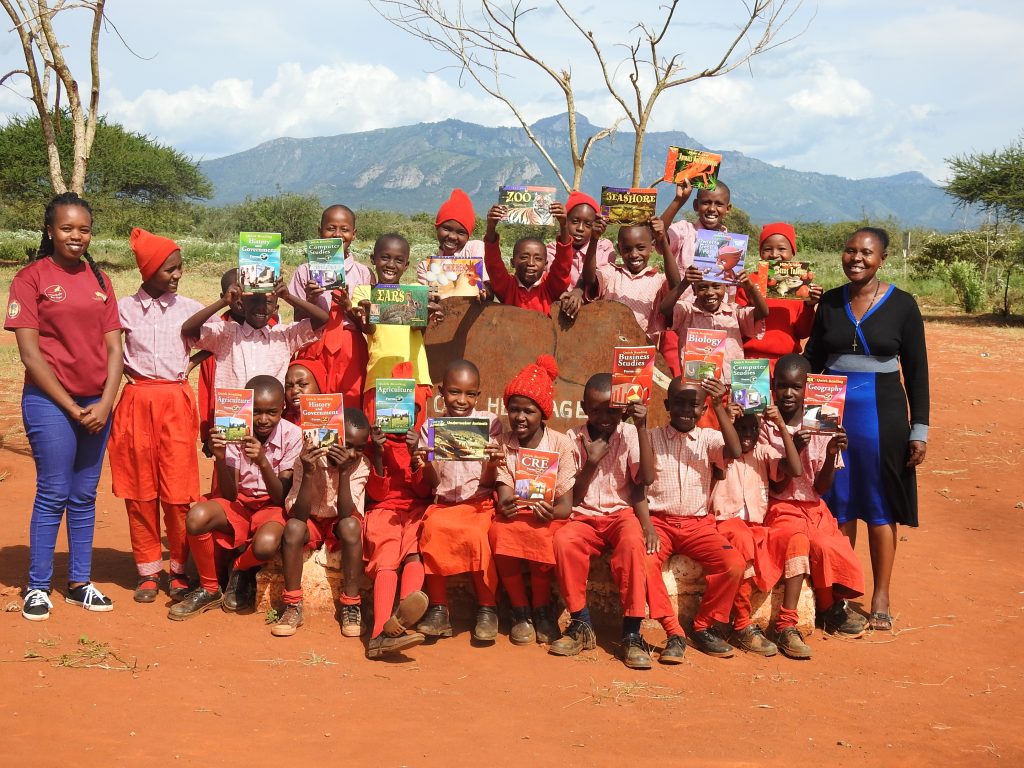Let's Make a Difference

Bursary for Secondary & Tertiary Education
We are delighted to inform you that our organization has launched a progressive initiative aimed at supporting education in the community. We are proud to offer two bursary programs: The Nuru Mwangaza and a primary school bursary for the top student in each community ranch to attend secondary school for four years. This program is open to students who demonstrate academic excellence, leadership potential, community involvement, and a passion for learning. By offering these bursaries, we hope to empower young people in the community to reach their full potential and pursue their academic goals without financial constraints. We firmly believe that education is the key to building a prosperous and sustainable future for our community, and we are committed to supporting education in every possible way. Our goal is to expand this initiative to other nearby communities.
Sponsored Students so far

Digital Literacy Program
Ensuring that the community has strong digital literacy skills is an essential factor in promoting academic success for students. Providing students with access to the latest technology and resources can make all the difference in preparing them for the future. This is why we have taken the initiative to build an ICT lab at Mlughi Primary School, which is solar-powered and equipped with technological equipment and software. Such facilities can provide learners with an interactive and engaging learning experience, and help them to develop vital skills in areas such as programming, research, and communication. Thanks to generous donations from several well-wishers, we are proud to have built and fully equipped the digital lab, which has already begun to make a positive impact in promoting digital literacy among students in the community. Currently, Mlughi Primary School runs it under the County Director of Education’s Office. Ten schools in the area use it, and we’re considering a second one higher up in the Taita Hills. We are committed to continuing our efforts to promote the use of technology in education and empowering the next generation with the skills they need to succeed in today’s digital age. Our goal is to expand this initiative to other nearby communities.

Feeding Program
Over the last three years, our organization has been dedicated to providing a feeding program to a number of local schools, including the Latika Primary School. Our commitment to helping these communities goes far beyond just providing meals, as we have gone above and beyond to ensure that the schools have the resources necessary to thrive. In addition to the feeding program, we have also made it a priority to pay teacher salaries, support our cooks, and provide access to clean drinking water by installing a water tank. Furthermore, we have gone the extra mile by constructing a kitchen onsite, to ensure that meals are prepared in a comfortable and safe environment. We take pride in our work and will continue to do all that we can to provide for the communities that we serve. Our goal is to expand this initiative to other nearby communities.
Apart from Latika Primary, Community and Wildlife Conservation has been able to partially support other schools for their feeding program, including Mwashoti Primary.
In addition, through CWC, we engage in talent nurturing, we provided 27 musical instruments and Ukuleles, to Mwashoti Primary School and Latika Primary School.

Plastic for Books Project
CWC is running a project, “Plastics for Books”. The project involves 31 primary schools neighboring LUMO Community Wildlife Conservancy and 7 schools neighboring Samburu National Reserve. The projects aim to create a plastic-free environment, in the conservation area, within the schools, and around their homes. The plastics collected, are taken by the CWC for recycling, and the proceeds as used to buy books for their school libraries. So far, they have collected 2599kg of plastics collected and recycled, and over 426 textbooks taken back to schools.
We are also engaging 2 youth groups at Samburu. For the groups, they are rewarded with soccer kits and conservation advocacy items.
It is estimated that recycling 1 kg of plastic saves about 1.5 to 3 kg of CO₂ emissions. Therefore, recycling 1500kg of plastic can prevent 2250 to 4500 kg of CO₂ from being released into the atmosphere. The production of new plastic from raw materials requires much more energy compared to recycling existing plastic. Recycling 1500 kg of plastic can save up to 8670 kWh of energy. This is equivalent to the energy consumption of an average household for about 9 months.
Important Links
Support Links
About Us
Sign up for our Newsletters
Thank you!
You have successfully joined our subscriber list.
© 2025 Community & Wildlife Conservation. All Rights Reserved.
